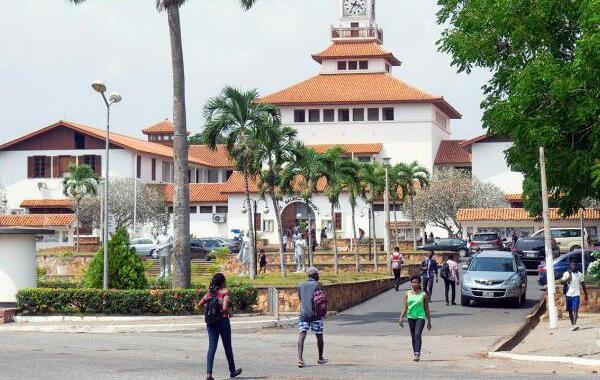The Institute of Statistical Social and Economic Research (ISSER) at the University of Ghana, with
the support of the Bill & Melinda Gates Foundation, is set to launch a new research initiative on
policies and incentives to deepen digital finance retail distribution networks in low-and-middle-income countries (LMICs).
The initiative will catalyze collaborations among researchers, policymakers and financial service providers to experiment with practical solutions for expanding the reach of mobile money and banking agent networks that are essential for connecting low-income households, women and vulnerable populations to formal financial services.
The initiative will support projects in Asia and Africa in a manner that fosters real collaboration between researchers in the Global South and Global North.
Despite strong evidence demonstrating the essential role of agent networks in driving financial
inclusion for underbanked populations, data from LMICs suggest agent networks remain quite sparse
particularly in poorer peri-urban and rural locations.
The initiative aims to demonstrate both a) how to effectively expand the reach of agent networks through public policy and commercial solutions that can plausibly be scaled; and b) how to advance public knowledge about the structural constraints limiting agent networks globally.
To achieve the project goals, ISSER will facilitate partnerships between policymakers, commercial
digital financial service providers and researchers, and fund pilot and large scale research projects.
Funding will target rigorous, high impact research projects with the potential for publication in high
impact journals on economics, development, and management, and relevance for informing practical
real-world solutions at scale.
Prioritization will be given to projects that explore financial incentives such as subsidies, relevant regulations, and other institutional arrangements that impact agent density, as well as those that are intentional in focusing on the role of agent networks in women’s access to digital financial services. ISSER staff will support dissemination of research insights through the publication of policy briefs, hosting of convenings, and other activities designed to inform policy and practice.
The research initiative will support qualified researchers around the globe working on projects set in
LMICs in Africa and Asia. Connecting researchers from the Global North and the Global South and
fostering direct South-South partnerships is core to ISSER’s vision for the initiative, which aims to
expand the representation of researchers from the Global South in research on development and
poverty alleviation.
ISSER will launch the new initiative, “Policies & Incentives to Deepen Digital Finance Retail
Distribution Networks in LMICs” in the first half of 2022 with a kick-off event and issue of the first
requests for proposals (RFP) for pilot studies and experimental research.
Latest Stories
-
ECG Power Queens support Ho Female Prison
46 minutes -
Don’t appoint a new EC Chair; allow Jean Mensa to work – Prof. Stephen Adei to Mahama
1 hour -
Bayer Leverkusen’s Jeremie Frimpong arrives in Ghana for visit
2 hours -
‘It will be disastrous if Mahama removes the Chief Justice’ – Prof. Stephen Adei
2 hours -
Jean Mensa must step down as EC Chair – APC and Movement for Change assert
2 hours -
Akufo-Addo calls on police to refine strategies to avoid prolonged electoral unrest
2 hours -
Only NPP looting brigade unhappy about ORAL – Ablakwa
2 hours -
CSIR-SARI introduces integrated soil fertility management technology to boost maize production
2 hours -
Ghana’s indigenous agribusiness faces challenges impacting economic growth – Dr. Azinu
2 hours -
41-year-old man arrested over illegal power connection
2 hours -
65-year-old man plans to walk over 250-km Kumasi-Accra journey for Mahama’s swearing-in
2 hours -
Woman dies after being set on fire on NYC subway
4 hours -
Elon Musk’s curious fixation with Britain
4 hours -
EBID wins the Africa Sustainability Award
6 hours -
Expansion Drive: Takoradi Technical University increases faculties
10 hours

